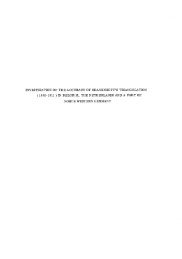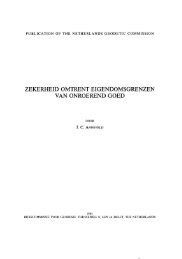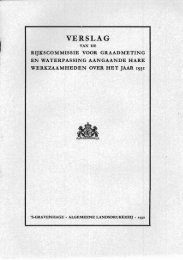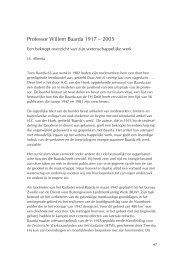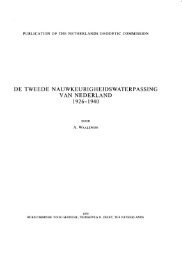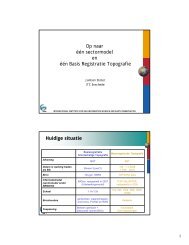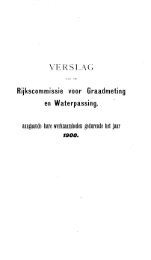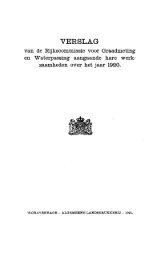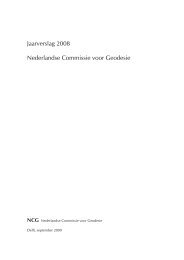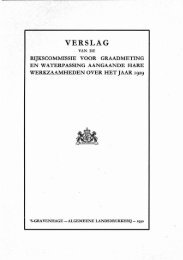The GNSS integer ambiguities: estimation and validation
The GNSS integer ambiguities: estimation and validation
The GNSS integer ambiguities: estimation and validation
You also want an ePaper? Increase the reach of your titles
YUMPU automatically turns print PDFs into web optimized ePapers that Google loves.
<strong>The</strong>ory of BIE <strong>estimation</strong> C<br />
In chapter 4 the theory of Best Integer Equivariant <strong>estimation</strong> was developed. In this<br />
appendix a more detailed description of the derivations is given based on (Teunissen<br />
2003f).<br />
C.1 Integer equivariant ambiguity <strong>estimation</strong><br />
Starting point is the <strong>integer</strong> estimator of the unknown <strong>integer</strong> <strong>ambiguities</strong> a ∈ Z n . Let<br />
this estimator be S(â) with S : R n ↦→ Z n . <strong>The</strong> new class of <strong>integer</strong> estimators to be<br />
defined here will be larger than the class of admissible <strong>integer</strong> estimators of definition<br />
3.1.1. Only the third condition of that definition will be considered, i.e. S(â − z) + z =<br />
S(â), ∀z ∈ Z n . This means that the result of <strong>integer</strong> <strong>estimation</strong> should not change<br />
when first an arbitrary <strong>integer</strong> z is removed from the float solution, then apply the<br />
<strong>integer</strong> estimator, <strong>and</strong> then restore the <strong>integer</strong>. So, the requirement is equivalent to:<br />
S(x + z) = S(x) + z ∀x ∈ R n , z ∈ Z n<br />
Estimators that satisfy this property will be called <strong>integer</strong> equivariant (IE).<br />
Lemma C.1.1<br />
(C.1)<br />
S(x + z) = S(x) + z ∀x ∈ R n , z ∈ Z n ⇐⇒ S(x) = x + g(x) (C.2)<br />
with g(x) periodic: g(x + z) = g(x).<br />
Proof:<br />
If S(x) = x + g(x) with g(x + z) = g(x), then S(x + z) = S(x) + z.<br />
If S(x + z) = S(x) + z, then g(x) = x − g(x) is periodic <strong>and</strong> S(x) = x + g(x).<br />
C.2 Integer equivariant unbiased ambiguity <strong>estimation</strong><br />
It follows that:<br />
a = E{S(â)} = E{â + g(â)} = a + E{g(â)}<br />
<br />
153



